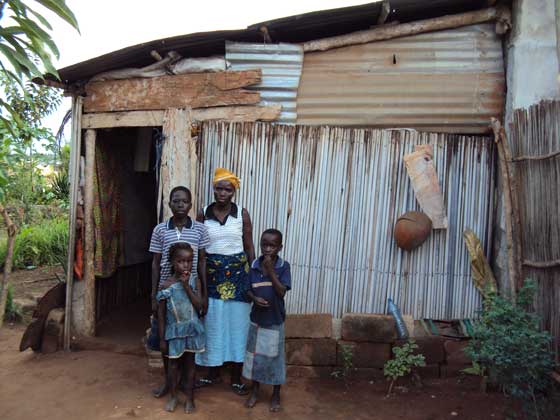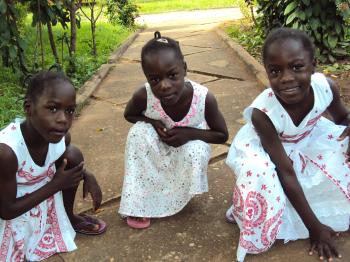Infrastructure under pressure as the population continues to grow

Abomey-Calavi is located close to Benin’s largest city, Cotonou, and with a population of more than 300,000 it is itself one of the largest cities in the country. This coastal region is Benin’s most heavily populated, and a steady migration from the poorer rural areas in the north further fuels the steady population growth. As a consequence, the region faces plenty of infrastructural challenges.
Economically, the region is by far the most important in the country due to its strategic location as a central place for trade and commerce in western Africa. However, the number of people living in poverty without access to sanitation remains high and an increasing number of slums are forming.
Malnourishment is common and a great hindrance to children’s development. Furthermore, the poorest people are struck the hardest by waterborne diseases and other infectious diseases which thrive in the tropical climate. The increasing urbanization of the area forces newcomers and the poorest to settle in areas where they are at high risk of becoming victims of flooding. Close to ten per cent of the entire population of Benin were affected by the flooding that occurred in 2010.
HIV/AIDS is a serious threat to the wellbeing of children in Abomey-Calavi and its surroundings. More than 30,000 children in Benin are estimated to be orphaned due to HIV/AIDS, and thousands of children are themselves affected by the disease. Abomey-Calavi and other urban areas have a higher rate of HIV-positive people than rural regions, and women account for a significantly higher number of those infected, which puts future generations of children at even greater risk.
SOS Children’s Villages seeks to help children by empowering their families
Vulnerable children in Abomey-Calavi need our help urgently, as the majority of the population continues to live in poverty. The poorest can rarely afford to pay for health services, and with a national fertility rate of more than five children per woman, many children are in high risk of losing care if something happens to one or both parents. Strengthening families and supporting them to learn skills and access resources that enable them to become self-sufficient and to properly care for their children is often the best way to help children. Therefore, SOS Children’s Villages increasingly focuses on reaching out to families at risk of breaking apart, while also providing quality care in our SOS families for children who have no one to care for them.
What we do in Abomey-Calavi

Village Abomey Calavi (photo: A. Gabriel)
SOS Children’s’ Villages has been working to improve the lives of vulnerable children in the region since 1987. Over the years, our efforts have evolved in order to reach as many children as possible. Today, our work in Abomey-Calavi includes giving children without care a loving home in one of eleven SOS families as well as supporting and empowering families who are at risk of breaking apart.
SOS Children's Villages has always been committed to strengthening the educational capacities in the local area. SOS Children’s Village Abomey-Calavi runs a kindergarten and a primary school as well as a secondary school specialised in arts and music. These provide local children and children from SOS families with a chance of obtaining an education and thus improving their future perspectives. When the children in our care become young adults, they join an SOS Youth Programme where they learn to become independent while completing their education or vocational training.
Through our social centre we provide children from vulnerable families with access to school and education as well as health services. At the same time, we work with the parents or carers to help them build skills that will not only improve their chances of supporting their family but also of providing a loving environment for the children to grow up in. Many of the families we reach are affected by HIV/AIDS; they are particularly vulnerable and have often been stigmatized and discriminated against. The vaccination of children is another task undertaken by our social centre, and we also seeks to raise awareness on important issues such as children’s rights, how to prevent the spread of HIV/AIDS, as well as how to protect oneself from infectious diseases.